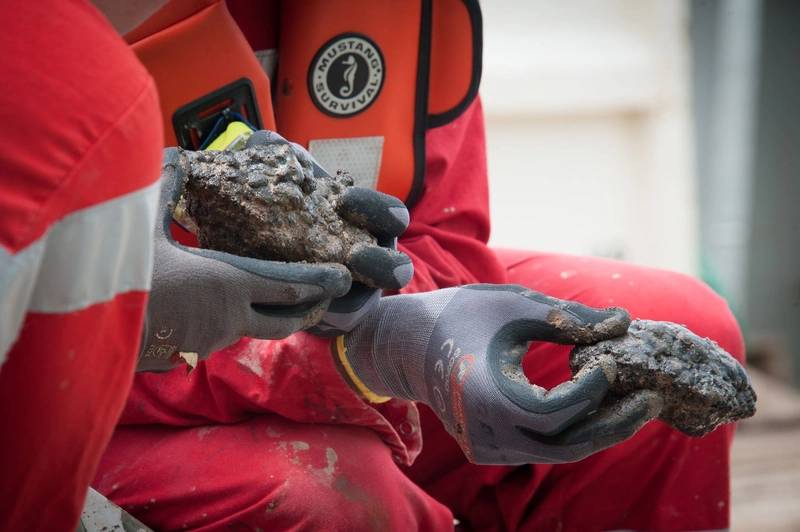Offshore drilling company Transocean has agreed to invest in DEME Group’s subsidiary Global Sea Mineral Resources NV (“GSR”) in exchange for a non-controlling stake in the company.
GSR is the deep-sea mineral exploratory company engaged in the development and exploration of deep-sea polymetallic nodules that contain metals critical to the growing renewable energy market, and is a developer of nodule collection technology.
Transocean has agreed to contribute the stacked Ocean Rig Olympia drillship for GSR’s ongoing exploration work, as well as make a nominal cash investment. In addition, Transocean expects to contribute engineering services on an in-kind basis.
GSR plans to convert the Olympia for a system integration test scheduled for 2025 to validate the technical and environmental feasibility of recovering polymetallic nodules in ultra-deepwater on a commercial scale.
"The technical challenges associated with the recovery of deep-sea polymetallic nodules offer an opportunity to combine Transocean’s unique ultra-deepwater operating experience with GSR’s proprietary technology in polymetallic nodule collection to deliver a commercially viable nodule recovery enterprise for GSR," Transocean said.
Critical minerals found in deep-sea polymetallic nodules such as cobalt, nickel, copper, manganese, and rare earth metals are essential for many applications, including the production of high-capacity batteries.
"Many governments and private enterprises are actively developing critical mineral strategies to address the expectation that these metals will be undersupplied for years to come. Responsible recovery of the nodules from the seabed would provide a new and significant source of supply required to support rapidly growing demand," the offshore drilling firm, known for its services in deepwater oil and gas exploration, added.
“GSR has an excellent leasehold position, and we are excited to support its team in the effort to meet global demand for the critical minerals necessary for a lower carbon energy economy,” said Transocean’s Chief Executive Officer, Jeremy Thigpen. “A mixture of all energy sources will be required to meet future global energy demands. Transocean’s work in deep sea minerals is another way we will continue providing essential offshore energy services.” Critical metals, such as nickel, cobalt, copper, and manganese – found in polymetallic nodules – are key ingredients for a low-carbon future Credit: DEME
Critical metals, such as nickel, cobalt, copper, and manganese – found in polymetallic nodules – are key ingredients for a low-carbon future Credit: DEME
Kris Van Nijen, Managing Director of GSR: “Transocean is a leader in the global offshore drilling industry and is well known for its ultra-deepwater expertise. We are proud to be working with them as we further explore the potential of deep seabed minerals, which may represent a better way of meeting future metal demand and expand diversity of supply.
"Critical metals, such as nickel, cobalt, copper, and manganese – found in polymetallic nodules – are key ingredients for a low-carbon future. Deep-seabed mining certainly won’t replace land-based mining entirely, however, according to peer-reviewed scientific literature, these metals could be delivered with a 40% reduction of the carbon footprint, which is essential when combating climate change.”
Luc Vandenbulcke, Chief Executive Officer of DEME Group said: “Since the International Energy Agency reported that society will need six times more metals by 2040 to become a net-zero society in 2050, there have been many national initiatives to secure the necessary supply of raw materials.
"From the U.S. Inflation Reduction Act, the Australian & Canadian Critical Minerals Strategy to the EU Critical Minerals Act, society is now fully aware of the geopolitical and environmental risk of the clean energy transition.
"As a result, the development of marine minerals has gained considerable momentum to help supply the responsible minerals needed to meet demand due to increased population, urbanization, and transition to a clean energy future and circular economy. Both DEME and Transocean plan to play an important role in the development of a responsible deep seabed minerals sector.”



